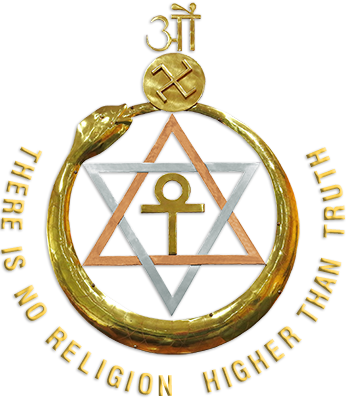White Lotus Day
Articles & Texts
Resources
Great Theosophical Days
Select Download above.
H.P.B. By One Who Knew Her
By G. Soobiah Chetty
Originally published in The Theosophist June 1946 pages 151-3
(There are at the Theosophical Headquarters only three left who had any contact with H.P.B. One is Mr. G. Soobiah Chetty and another myself. My contact was brief, as I saw her only twice as boy when C. W. Leadbeater went to call on her in London and I accompanied him. The third resident, M. Subramania lyer, for many years a prominent theosophical worker in Burma, had a glimpse of her as a boy of twelve. Colonel Olcott and H.P.B. left the train at Chingleput on their journey from South India to Madras. By invitation of a public committee the two Founders left the train and were taken in procession. The boy Subramanian had heard of the two strange white visitors and so was in the procession and saw H.P.B. Some two hours later the Founders continued their journey to Madras.
But Mr. Soobiah Chetty as a young man saw H.P.B. constantly during the three years of her residence at Adyar. He is still living at the Theosophical Headquarters. Though unable to be present at the White Lotus Day celebration, he sent the following messages
—C. JINARAJADASA).
AFTER his return from Guntur and Nellore in 1882, Colonel Olcott expressed his. intention of changing the Headquarters of the Theosophical Society from Bombay to Madras. A few friends of Madame Blavatsky soon collected a sum of money and the house, "Huddlestone Gardens," which was the old name of the Headquarters, was purchased. In connection with the selection of the place, I desire to say that when within a few days of her arrival in Madras, H.P.B. came to look at the place, she suddenly said: "Master says, ‘buy this place.'" H.P.B. always acted under the direction of her Master.
In this place H.P.B. lived and laboured from 1882 to 1885, when she left for Europe. She always rose early and set to work immediately. She was a tireless worker.
I recall her massive head and I remember its remarkable size and shape. I also remember the steady penetrating gaze of her eyes. She would open her mouth and eyes wide and laugh with the innocence and naturalness of a child.
It was sometimes said that she was an eccentric woman, I do not agree. Whatever took place in or about her was beyond doubt out of the normal, and she was most undoubtedly endowed by nature with psychic powers which she controlled. I do not also agree that she was ill-tempered as was frequently alleged. There was nothing violent or brutal in her and any quick change in her was a consequence of her long and intense previous occult training. It was also frequently alleged that she was a credulous woman. I again say that it is wrong. Credulous she was not, and she was not a fool either. She felt that it was undignified and unspiritual to suspect a fellow being.
Every line of her face was instinct with power. Her every action proclaimed it. When she brought the two palms of her hands together and bent them so as to form a cup, a loud explosion was heard; musical bells rang clearly in the rooms in which she happened to be; voices were heard; and missives dropped from above. All these happenings were spontaneous.
As far as I knew, her only enemies were the Christian missionaries and their tools and sympathizers. Her hatred of Christian dogma and ecclesiasticism was twisted and misrepresented as a hatred of the ethics of Christ or of the Christian religion itself. It was as false as it was wrong. She hated religious dogma and ecclesiasticism unreservedly and universally. It just simply happened that the Church which gave itself superior airs received a more devastating exposure than any other institutional religion.
There are two important features of her life and character and disposition that I would like to lay great stress on. Her devotion to her Master, and her abiding faith in His benevolence and guidance were the most conspicuous among her numerous virtues. She did not take any credit at any time to herself, it was always the Master in her thoughts or in her words and acts. The other feature is her overwhelming sense of Universal Brotherhood. It was from the precept and practice of it that she forgave most freely and wholeheartedly men and women who slandered her.
I appeal to you to cultivate equal faith in the Masters who watch over us all, and to practise Brotherhood in an equally efficient manner. We talk of Brotherhood but most of us like to choose our friends. We talk of democracy, but what can be more democratizing than Universal Brotherhood? The democracy of politicians and statesmen is tribal or national, but the Universal Brotherhood of the Theosophical Society is democracy in the truest and highest sense of the word.
"HP.B. to HP. Blavatsky
with no kind regards."
Written on the fly-leaf of H.P.B.'s copy of The Voice of the Silence, now among H.P.B.'s books at Adyar.



